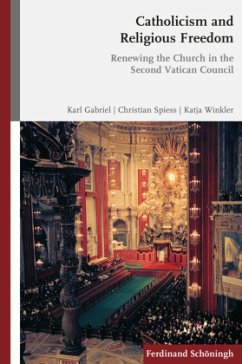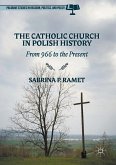Just about fifty years ago, in its declaration on religious freedom at the Second Vatican Council, the Catholic Church programmatically dispensed with political coercion as a means of enforcing its claim to truth. This act of self-imposed restriction with regard to religious claims to truth is exceptional in the history of religions. It is still extremely difficult to explain even today how such a traditional institution as the Catholic Church could have altered its position so fundamentally. In this volume the authors dispute how the Church came to its position, what the reasons and motives were for its repositioning, what shape this process of change took, and the steps involved in the change: What were the characteristics, circumstances and dynamics of the path of Catholicism to recognizing religious freedom?


